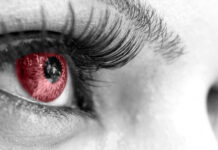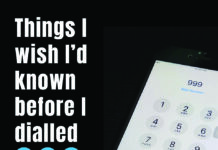My first suicidal thoughts started at 7 years of age. I was constantly being bullied and didn’t see the point of me being here. I wanted the physical and mental abuse to stop. I was very unhappy, very afraid and wanted to die.
Depression started at 14 years of age where I would try to hide how bad I felt about myself. At that time, on the outside, I was probably one of the most popular girls in school. Inside I was falling apart.
Depression hit hard again at college. I remember lying to my tutors telling them my aunt had died so I didn’t have to pretend I was happy.
In my mid 20’s I was finally diagnosed with depression. I remember one night being terrified as my suicidal thoughts were telling me to get into my car and drive at full speed into a brick wall. I remember telling my best friend at the time how scared I was of what I might do and asked her to be by my side. She never came. Therapy helped me at that time but the depression never went away. Coming up to my 40’s I had enough. I knew I had to do something drastic or the depression could end my life.
I went back to Ireland and interviewed different members of my family. I wanted to understand where the deep-routed depression and suicidal thoughts were coming from. I got my answers. I wrote a book called ‘The Power of Knowing You’ and against some of my family’s wishes, I published it. I honestly believe I would not be here today if I hadn’t written and published the book. It helped me make so much sense of the depression.
I wrote the book so that people who have been through similar experiences with their mental health don’t have to spend the rest of their lives feeling worthless, thinking the only way to end the pain is to die by suicide. Publishing the book meant not living in fear anymore about what other people think, letting go of the responsibility to protect my family’s feelings, and using my story to help others.
I think it is very important to understand why depression or any mental health condition is happening. One of the massive turning points in my life is how I now see depression as a way of telling me something is wrong and that I need to make changes.
I understand that sometimes I get triggered to painful memories from the past and that I need time and self-care to process these. I accept depression now, as something that is helpful to me. It does not define who I am.
When I look back on some of the common factors that affected my mental health, I grew up in a suppressed environment. I didn’t know it was suppressed and even if I did, I wouldn’t be allowed to see it that way!
I blamed myself for stuff that was happening. I believe it’s only if you have been through depression or a mental health illness that you can really understand how personal, isolating and worthless it feels, and how suicide can seem like the best outcome to end the pain. How was I to know that the behaviour of the people I loved the most was causing me to feel worse when they didn’t know it either?
I learnt that my family could not give me the unconditional love that I craved because they were not shown it themselves. This is something I talk about a lot in my mental health theatre shows.
Our environment and society can have a massive impact on our mental health.
People’s single minded beliefs and judgements can drive someone to suicide. An example of this is a young man who took his own life because his father could not accept he was gay. His uncle took him to a faith healer with the belief it would rid him of the evil inside him. Forced religious beliefs and cultural behaviour can sometimes have a detrimental effect on a person’s mental health.
Sometimes the reaction from others towards self-harm can make a person feel worse. Comments like, ‘Why are you doing that to yourself?’, ‘You need to stop that!’ and ‘How do you think I feel when people see cuts on your arm?’ can be unhelpful. They can feed into feelings of guilt and suicidal thoughts like, ‘I am such a bad person, look at what I am doing to my family, they would be better off without me!’.
Please be aware of your reactions to self-harm as it may be about you not being able to cope with seeing self-harm. The person who is self-harming is not in the right emotional state to take on your worries too. If you are struggling to cope with seeing self-harm then I really encourage talking to a professional or educating yourself about it so you are in a better position to help you and the people you love.
You can choose to see self-harm as a way to cope, be curious about how it helps them, accept the self-harm as keeping them alive and be open to exploring other ways to cope that might also be helpful for them.
I have the privilege of using what I have learnt about mental health at my private practice in Sutton Coldfield, the Priory Psychiatric Hospital and through my mental health talks and theatre shows. When it comes to mental health I believe no-one is an expert, as humans are all different and we all experience things differently. I believe in supporting each other by offering lots of possible solutions, allowing people to choose the ones that might be most helpful.
I have produced a free online mental health show about suicide. The show explores the stigma of suicide, suicidal thoughts and intent and what you can do if you find yourself in any of these situations. It includes an interview with a survivor of suicide and a volunteer from the Samaritans. You can view it on YouTube, just search for ‘Sheila’s Online Mental Health Show’. You can view the entire episode or alternatively view the video in smaller bite size parts. https://youtu.be/ajNIGgoC_Nw
What can we do as a society to help?
As a society we can take the pressure off people and ourselves to be happy all the time. We can accept that it’s OK not to be OK!
We can normalise talking about feelings.
Showing emotion in the past was seen as a weakness when actually it takes great strength to be comfortable with your own vulnerability.
We can look at our attitudes, beliefs and behaviours about discussing mental health and around showing and talking about emotions.
We can learn to say things like, “Do cry, let it out!”, “Take as much time as you need” and “We will get through this together”.
We can break the silence and talk about mental health and suicide.
We can stop saying people commit suicide as the word ‘commit’ makes it sound like a crime. We can change the language we use by saying somebody survived an attempt, or died by suicide.
We can show compassion and understanding towards each other. We can connect more and make more time for each other in person.
We can have more fun, dance and sing more and learn to let go.
We can be mindful that we are all just doing our best and want to be loved.
How are we to know the impact we are having as a society unless we educate ourselves about mental health and human behaviour? This is why I am so passionate about mental health education. My book ‘The Power of Knowing You’ sums up part of the learning that I have used to help myself and others. It can be purchased on Amazon https://www.amazon.co.uk/POWER-KNOWING-YOU-Learning-past/dp/0993213804 or at my mental health theatre shows.
My next ‘Sheila’s M.H.S. Mental Health Theatre Show’ is Show 4 about ‘Attachment’ and is at the Stafford Gatehouse Theatre on Fri 13th September 2019. https://staffordgatehousetheatre.co.uk/events/sheilas-m-h-s-mental-health-show-2019/
Well done Mama Life for highlighting such an important topic. My heart goes out to those of you who have lost loved ones through suicide. I could have been one of those people and my parents could have blamed themselves for the rest of their lives for something that wasn’t their fault. We can’t change the past but we can learn from it and change the future.
You are part of this change by taking the time to read this article. Thank you.
Shiela Mcmahon
Counsellor Reg MBACP, FSP, Comedienne and a Survivor of Mental Ill Health












